
We can all agree on one thing.
To achieve the best gains from our workout, a balanced nutrition is absolutely critical! To understand why, we first have to know what happens with our bodies when we subject it to the high physical strain of an intensive workout!
What happens to the body during an intensive workout?
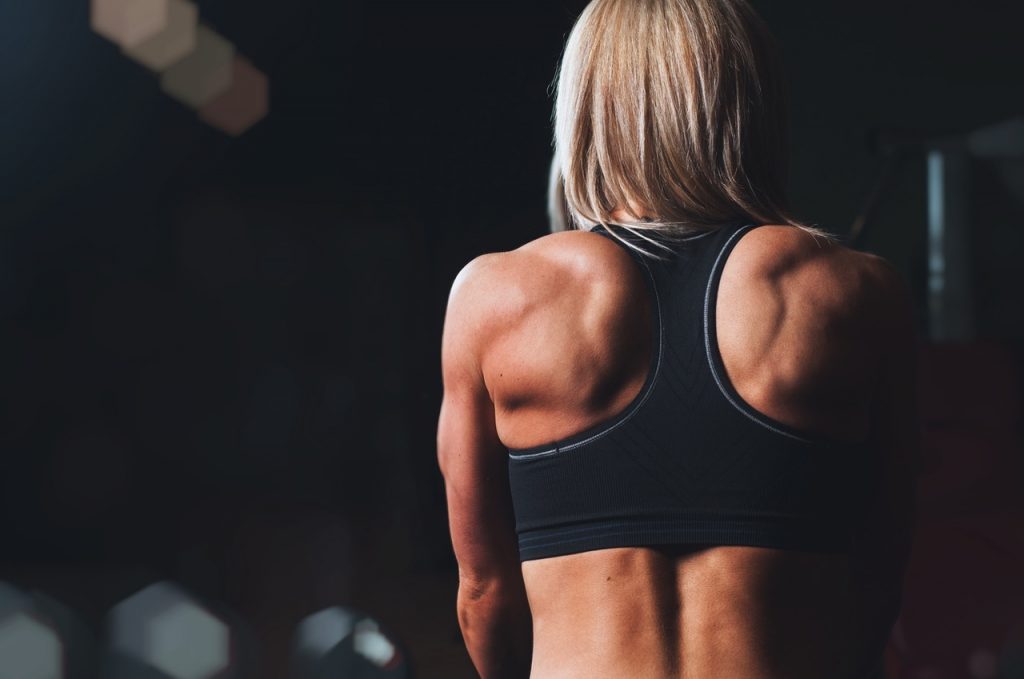 No matter the goal, be it weight-loss, muscle gain or keeping that perfect figure, active exercising and workout indeed changes our bodies.
No matter the goal, be it weight-loss, muscle gain or keeping that perfect figure, active exercising and workout indeed changes our bodies.
In an intensive workout routine our entire body goes from an idle state to a state of heightened stress and excitement.
Our muscles use up the glycose reserves stored in the body by creating ATP molecules (the basic molecule needed used as energy source in normal cell function and the muscle fibers suffer micro tears from the repeated contractions.
Muscle fibers suffer micro-tears which allows them to grow stronger and bigger as they heal which promotes muscle volume-growth. During this time the body needs lot of oxygen to meet the bodily energetic needs thus we breathe 10 to 15 times more oxygen.
Next,
The heart rate increases to meet the body’s oxygen needs and as this process is repeated eventually the overall blood pressure decreases as the heart strengthens in healthy individuals.
The brain is flooded by various neuro-transmitters and endorphins which produce the effect of “runner’s high” – a pleasurable sensation experienced my many body builders and fitness enthusiasts.
Nutrient usage in intensive workouts!
Apart from raw energy, the body also uses up a lot of so-called micronutrients, important chemicals for the normal function of the muscles. Among the most important are:
Potassium and Sodium
Potassium and Sodium are the bread and butter for normal muscle function! After a long and intensive exercise it is important to replenish potassium and sodium to speed up muscle recovery, help reduce and prevent cramps as well as ensure the normal muscle-nerve function.
We lose these electrolytes extensively during exercise via sweating which helps our bodies stay cool. As a primary electrolyte in the intracellular fluid they play a pivotal role in balancing the water content in the body.
Vitamin D
Vitamin D not only helps in improving the mood but also it can increase your power level. Some studies report that people feel less fatigued after receiving doses of Vitamin D. Vitamin D deficiency prevents the mitochondria (the cellular engine) in the muscle fibers to adequately supply energy after muscle contractions, making you feel exhausted quickly.
Vitamin B
The body uses Vitamin B (especially Vitamins B6, B12, riboflavin, folate and thiamin) to convert sugars as well as proteins during workout. Having low levels of Vitamin B has been linked to low energy and poor athletic performance. This is the reason it is essential to replenish these micronutrients during and after a prolonged exercise.
Iron
We spend a lot of iron during lengthy and intensive workouts as red blood cells use up this mineral to carry the increased amount of oxygen to the muscles. If we do not replenish our iron reserves properly there’s a chance of developing an iron-deficiency anemia. To help your muscles work efficiently, you need to pump some iron — literally! An hour of working out could deplete 5.7 percent of your level of this mineral, which helps red blood cells carry oxygen to muscles. Losing too much of your stores can result in iron-deficiency anemia, which causes fatigue and zaps your endurance during lengthy sessions. This can in turn cause fatigue and sap our endurance during intensive exercise sessions.
Magnesium
Magnesium is an astonishing and very important mineral which is involved in various metabolic processes. It also has an important role in bone formation and retaining of bone density. Increased bone density protect the body from stress-induced fractures during highly intensive activities and workouts. As with potassium and sodium we lose magnesium through sweat. So eating food rich in Magnesium is the right choice before a hard and intensive workout.
What is the best way to replenish these nutrients after an intensive workout?
After an intensive building exercise or workout routing our body are depleted in nutrients.
It is very important to eat in the first hour after we finish the routine because the nutrients that we intake are directly taken to the “crime scene” meaning that they are taken directly to the tired and damaged muscles instead of being stored as fat deposits.
So, in other words,
Foods that are balanced source of carbs, proteins and rich in micronutrients are the right choice when choosing a post-workout meal or snacks. These are also and excellent source of fiber!
Foods to consider for an after-workout meal or snack, especially if you are on a gluten-free diet:
Sweet Potatoes, solid carb solution!
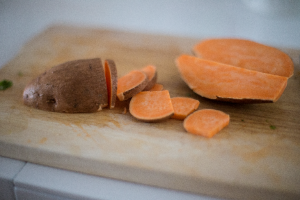
Sweet potatoes are a dense source of carbohydrates and good source of proteins. They also contain high doses of Vitamin B1, B2, B3 and B6 and are an excellent source of Vitamin A.
They provide a lot of antioxidants which are essential in mopping up those free radicals created by natural energy burning. It might sound weird at first but give them a chance and be surprised! And absolutely gluten-free!
Kale, micronutrient powerhouse!
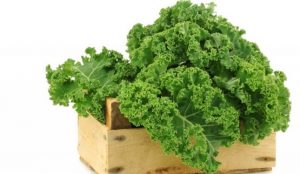 This gluten-free, green powerhouse is a rich source of protein and fiber which help in managing blood sugar and provide satiation. As an awesome source of Vitamin A, Vitamin C and Vitamin K it will replenish many of needed micro and macro nutrients spent after a heavy workout.
This gluten-free, green powerhouse is a rich source of protein and fiber which help in managing blood sugar and provide satiation. As an awesome source of Vitamin A, Vitamin C and Vitamin K it will replenish many of needed micro and macro nutrients spent after a heavy workout.
Besides fish, kale is a gluten-free, rich source of Omega-3 acids, potassium, calcium and phosphorus.
There’s more,
Spinach, you have to pump that iron up!
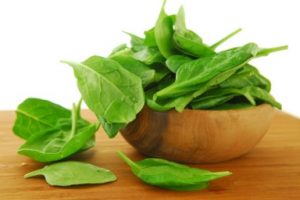 Spinach is a well-known nutrient-rich food for our body. Spinach is not only gluten-free and very rich in Vitamin A, C, Calcium but it is one of the best natural sources of Iron out there. Low in calories and rich in micronutrients, fiber and nitrates it is a great choice when we need a quick replenishment.
Spinach is a well-known nutrient-rich food for our body. Spinach is not only gluten-free and very rich in Vitamin A, C, Calcium but it is one of the best natural sources of Iron out there. Low in calories and rich in micronutrients, fiber and nitrates it is a great choice when we need a quick replenishment.
Studies show that consuming an extra amount of dietary nitrates help us through many intensive exercises and workout routines which show that our beloved Popeye was right!
Sweet Onions, the health protector!
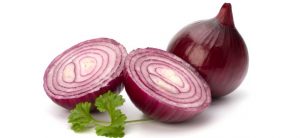 Onions are considered as the world’s healthiest food and for a good reason! Onions are gluten-free, rich in phytochemicals and Vitamin C that improve the immune system. They have extraordinary anti-inflammatory properties!
Onions are considered as the world’s healthiest food and for a good reason! Onions are gluten-free, rich in phytochemicals and Vitamin C that improve the immune system. They have extraordinary anti-inflammatory properties!
Sweet onions protect our hearts by lowering the production of LDL (bad cholesterol) is also rich in Vitamin A and antioxidants, acting as an all-around health protector!
Final note,
All of these healthy, gluten-free foods are main ingredients in the fascinating range of Hi I’m Skinny snacks.
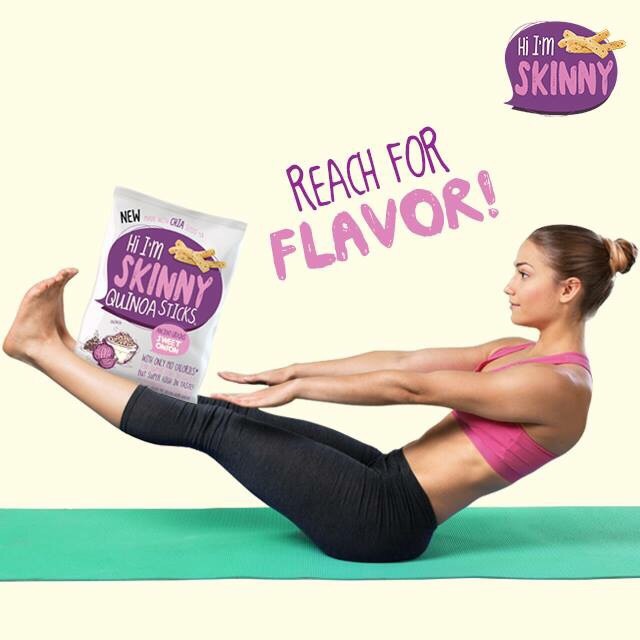
You can sample at Train-SF on:
Tuesday, 21.03.2017 from 11:30-17:00 and Wednesday, 22.03.2017 from 16:30-23:00.
Until next time!*
*This website is for informational and entertainment purposes only and is not a substitute for medical advice, diagnosis or treatment. Please consult your physician whenever you plan to make significant changes in your diet.

Comment
[…] We can all agree on the fact that raw food diets are becoming more popular every day as people are changing their eating habits on the healthy side. […]